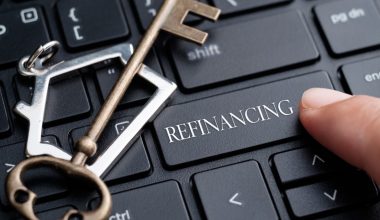The application procedure for business loans can delve into practically every aspect of your financial history.
When it comes to applying for a business loan, it’s preferable to do it ahead of time. But you must be prepared for your loan application meeting—many business owners are unable to meet business loan standards when they require cash because they have not prepared.
You should gather the documentation and other information required to qualify for a business loan well in advance of visiting a lender.
And, before you require funds, you should at least be aware of the lender’s specific guidelines.
Do you want to know how to qualify for a business loan? Continue reading to find out how to apply for the best business loans in 2023.
What is a Business Loan?
A business loan is a loan that is solely for business reasons. As with all loans, it entails the formation of a debt that must be repaid-with interest. Bank loans, mezzanine finance, asset-based financing, invoice financing, microloans, business cash advances, and cash flow loans are all examples of business loans.
Business loans are agreements between business owners and banks or private lenders to lend money. Businesses require capital to fund operations or just to get started and begin producing a profit. Banks and lenders are eager to lend them money in advance as long as they pay it back on time and with interest.
Read Also: How To Apply For PPP Loan Forgiveness For Self-Employed
Several factors influence whether or not enterprises and startup entrepreneurs can use loans as debt capital. The company’s credit quality is the most essential factor, but other factors such as the length of time it has been in operation, any collateral it may supply, and current financial health can all make a difference.
Types of Business Loans
Here are the nine best business Loans and startup business loans in 2023
- Term loans
- SBA loans
- Business lines of credit
- Equipment loans
- Invoice factoring and invoice financing
- Commercial real estate loans
- Microloans
- Personal loans
- Franchise loans
- Merchant cash advances
#1. Term loans
Term loans are one of the best loans for small businesses and consist of a lump sum of money that you return over a certain period. Typically, the monthly payments will be fixed and would include interest on top of the principal debt. A term loan gives you the freedom to use it for several purposes, including ordinary spending and equipment.
#2. SBA loans
Small Business Administration (SBA) loans are appealing to entrepreneurs looking for low-cost government-backed loans. However, SBA loans are renowned for having a lengthy application process that can cause you to miss out on funding. Approval and receipt of the loan can take up to three months.
#3. Business lines of credit
Business lines of credit, like credit cards, offer borrowers a revolving credit limit that is normally accessible through a checking account. You can spend up to your credit limit, refund it, and then withdraw more funds.
These choices are perfect if you’re not sure how much money you’ll need because you only pay interest on the amount you withdraw. In comparison, a term loan forces you to pay interest on the full loan regardless of whether you use part or all of it. Many business lines of credit are unsecured, which means no collateral is required.
#4. Equipment loans
If you need to finance major equipment purchases but don’t have the cash, an equipment loan may be an option. These loans are intended to assist you in paying for costly machinery, vehicles, or equipment that has a resale value, such as computers or furnishings. In most circumstances, the equipment you buy will be used as collateral if you are unable to repay the loan.
#5. Invoice factoring and invoice financing
Business owners who are having difficulty receiving on-time payments may wish to consider invoice factoring or invoice financing (aka accounts receivable financing). You can sell unpaid invoices to a lender and collect a percentage of the invoice value upfront by using invoice factoring.
Unpaid invoices can be used as collateral to obtain an advance on the amount owing through invoice finance. The major distinction between the two is that factoring gives the firm purchasing your invoices control over collecting payments, whereas financing requires you to collect payments to return the amount borrowed.
#6. Commercial real estate loans
Commercial real estate loans (also known as commercial mortgages) can assist you in financing new or existing property such as an office, warehouse, or retail space. These loans function similarly to term loans and may enable you to purchase a new commercial property, expand an existing site, or refinance an existing loan.
#7. Microloans
Microloans are modest loans for businesses that can offer you cash of $50,000 or less. Because the loan amounts are very small, these loans can be a useful alternative for young firms or those who don’t require a large sum of money. Many microloans are made available by organizations or the government, such as the SBA, although you may be required to put up collateral (such as company equipment, real estate, or personal assets) to qualify for these loans.
#8. Personal loans
A personal loan might be used for business objectives. It is a viable option for startups because banks normally do not lend to companies with no operating history.
These loans are approved completely based on your credit score, but you must have decent credit to qualify.
#9. Franchise loans
Although you will still require funds, becoming a franchisee can help you accomplish your goal of business ownership faster and easier than beginning from scratch. Also, franchise loans can help you pay the initial investment for starting a franchise, allowing you to get up and running as soon as possible. While you are the one who obtains the financing from a lender, some franchisors may provide funding to new franchisees.
#10. Merchant cash advances
Merchant cash advances, like traditional cash advances, have a hefty cost. This form of cash advance necessitates borrowing against future sales.
In exchange for a large sum of cash, you will repay it with a share of your daily credit card sales or by weekly payments from your bank account.
Merchant cash advances, as opposed to invoice financing/factoring, use credit card transactions as collateral rather than outstanding invoices.
Business loan requirements
Here’s a list of the top 10 business loans requirements for easy business loans:
- Time in Business
- Personal Credit Score
- Business Credit Score
- Annual Business Revenue and Profit
- Bank Statements
- Personal and Business Tax Returns
- Loan Purpose
- Loan Amount
- Business Plan
- Entity Type
>. Time in Business
Every lender will want to know how long you’ve been in business. The longer you’ve been in business, the better it is for your application because it tells a lender that your company has been successful over time.
Finally, keep in mind that the two-year mark should be kept in mind. If your company is less than two years old, it is not impossible to obtain a business loan, but it does limit your alternatives.
Although banks are less willing to lend to businesses that are less than two years old, internet lenders frequently have more flexible standards in terms of your time in business.
>. Personal Credit Score
Your credit score is one of the most essential business loan requirements you’ll need to meet to qualify for funding.
Lenders will request your personal credit history and financial details to estimate the possibility that you will repay your loan—if your finances are healthy, lenders expect you will be able to manage your business finances as well.
>. Business Credit Score
Your corporate credit score measures your company’s creditworthiness in the same manner that your credit score indicates your borrowing history. Your business credit score is determined by your company’s payment history to suppliers and lenders. The industry, size, and income of your company can all have an impact on your score.
Many business owners are unaware that their company has a credit score, or that it is a frequent small business loan condition. Having said that, three major organizations track company credit, and each has its unique technique for determining your business credit score.
Furthermore, many lenders utilize the FICO SBSS score to analyze your loan application because it is based on a mix of your business credit score from the other three agencies, as well as your credit score and the financials of your firm.
As a result, before asking for a small business loan, you should be aware of your company’s credit score.
>. Annual Business Revenue and Profit
One of the most typical loans for small businesses conditions you’ll find from different lenders is your company’s annual income and profits.
Lenders will often want to see a year-to-date profit and loss statement that has been updated within the last 60 days, as well as statements from the previous two years.
Having said that, to approve you for funding, banks will want to establish that your firm is profitable. Alternative lenders, on the other hand, will normally have yearly revenue minimums rather than profitability requirements.
Finally, regardless of the lender’s requirements, the stronger your firm financials (as demonstrated by annual income and profits), the more likely you will be to qualify for financing and business finance at the most inexpensive rates.
>. Bank Statements
Lenders will look at your bank statements to see if you can afford the loan and will be able to repay it. Bank statements can also provide lenders with information about how well you manage the cash that comes into your organization.
As a result, lenders will often need four months of business bank statements to back up the assertions you’re making about your company’s financial history. If you’re seeking an SBA loan or a traditional bank loan, you’ll need to furnish even more bank statements.
>. Personal and Business Tax Returns
Lenders will use your tax returns, just like your personal and business credit ratings, to assess the health of your personal and business finances, and hence your capacity to afford and repay a business loan.
In general, you’ll need to supply at least the last two years’ worth of personal tax returns. These records are especially necessary if you have a pass-through corporation (a sole proprietorship, partnership, or S-corp) and declare the profits and losses of your business on your tax return.
Having said that, your business tax returns will be especially important if you have a corporation or an LLC that is taxed as a corporation.
The lender will utilize your last two years of business tax returns to verify your revenue, profit, and costs in these circumstances.
>. Loan Purpose
It may seem apparent, but a standard startup business loans requirement is a declaration detailing how you intend to spend the loan funds.
In this statement, you should be as explicit as possible—generally, lenders allow a wide range of loan purposes; however, they want to ensure that the quantity of money you’re requesting corresponds to the purpose of the loan.
>. Loan Amount
You’ll also need to specify your loan amount—that is, how much money you want to borrow from the lender—which is directly tied to the loan purpose.
Banks, in general, have the highest capital and can make loans in the six and seven figures.
As a result, if you require a smaller sum of money (less than $250,000), banks are usually not the greatest option. Smaller amounts of money will most likely require the use of other lenders and, in certain situations, SBA loans.
With this business loan requirement, it’s critical to be upfront and explicit about how much funding you need (as well as how you intend to use it)—and, of course, you don’t want to ask for more than you can afford.
>. Business Plan
A business plan or loan proposal may not always be required for a loan for business, but it will be for some.
For typical term loans and SBA loans, for example, you will undoubtedly be required to present a business plan.
You’ll be able to write out both your financial goals—future sales, profits, revenue, cash flow, and so on—and your qualitative company goals in your business plan. You’ll want to utilize this document to demonstrate to your lender that you’ve considered all of the potential prospects and problems for your business, as well as how you intend to create a successful firm.
>. Entity Type
A lender will most likely ask you to declare your business entity type, which is one of the simplest business loan requirements.
Knowing how your company is organized might provide your lender with insight into how you manage and operate your small business. Furthermore, although it is uncommon, some lenders will not lend to single proprietorships or partnerships.
Business loans rates
The interest rate on a business loan might vary greatly. Getting the best credit rate now can have a long-term influence on your profitability.
According to the most recent Federal Reserve data, the average business loan interest rate at banks ranges from 2.58 percent to 7.16 percent.
Understanding small-business loan prices will help you choose the best solution and save money as a business owner. Here’s everything you need to know about business loan interest rates and costs.
The lender: Bank small-business loans often have the lowest interest rates but strict qualification requirements. Online lenders have fewer eligibility conditions but charge a higher fee: Interest rates on internet business loans can range from 9% to 99.9%.
Read Also: UNSUBSIDIZED LOAN: Definition, Eligibility & Interest Rates (Updated!)
The loan type: Lenders provide a variety of loans for small businesses, with interest rates varying depending on the product. Loans sponsored by the U.S. Small Business Administration are frequently the best offer. The SBA loan rates range from 5.50 percent to 8%.
Your financial situation: The lender will consider eligibility factors such as your credit score, time in business, and business income. If you look to be a dangerous borrower, the interest rate you’re offered will almost certainly be greater.
Your collateral: If you secure your loan with business collateral, such as inventory or property, lenders may offer you a lower interest rate.
Business loans calculator
A loan for business can help you establish or grow your firm, but you should understand what you’re getting into before you borrow money.
A business loan calculator will show you how much it will cost to obtain a loan. To show how much of an impact you can have on repayment, change the term and make extra monthly instalments.
The best business Loan Calculator computes the payback and total expenditures of a business loan. The costs can also be factored into the calculator to determine the true annual percentage rate, or APR, for the loan.
Calculate here
How to apply for business loans- Utimate Guide
Here is the ultimate step by step Guide on how to apply for a business loan:
- Decide Why You Need Financing
- Check Your Eligibility
- Compare Business Lending Options
- Gather the Required Documents
- Submit Your Application
Decide Why You Need Financing
There are various types of business loans. Determining why you require finance will assist you in selecting the appropriate type of loan.
Here are a few examples of common scenarios:
- Buy new equipment
- Borrow money on an as-needed basis
- Borrow a small amount of money
- Establish a business
- Pay for day-to-day operations
Check Your Eligibility
Although business loan criteria vary, the following four factors are likely to be considered by lenders when considering your business loan application:
- Credit score
- Collateral and/or a personal guarantee
- Time in business
- Annual revenue
Compare Business Lending Options
Business loans can be obtained from a variety of sources. Three of the most frequent types of lenders are listed below.
Online Lenders
Smaller business entrepreneurs can obtain a number of loan products from online lenders, including term loans, merchant cash advances, lines of credit, and microloans.
Traditional Banks
Many of the same sorts of business loans are available from traditional banks as from online lenders. The main benefit of applying for a small business loan through a bank rather than an online lender or microlender is that banks often provide cheaper interest rates to well-qualified candidates.
Microlenders
Microlenders are primarily non-profit organizations that make microloans of up to $50,000 to qualifying applicants, with the goal of providing funding for business owners who do not qualify for standard business loans. This time of business loans typically has more lenient eligibility requirements.
Gather the Required Documents
Gather the necessary credentials once you’ve determined your lending alternatives. A lender will most likely want the following items:
- Personal and business tax returns
- Business licenses
- Articles of incorporation
- Personal and business bank statements
- Profit and loss statements
- Financial statements
- Business plan
- Building lease
Before applying, check with the lender to see what documents are required.
Submit Your Application
The final step is to submit an application for a small business loan. You can do this online or in-person, depending on the lender you’ve chosen to work with.
Here’s some information a lender might ask for:
- Your name
- Business name
- Social Security number (SSN)
- Desired loan amount
- Loan purpose
- Business Tax ID
- Annual revenue
Also, you will have to wait for an approval decision after submitting your application. If your loan is authorized, a lender will send you a loan agreement to sign before releasing funds or establishing a line of credit from which you can draw.
Conclusion
There is no one-size-fits-all solution for qualifying for a company loan. While you may believe that you need a perfect credit score and a high annual income to get the best small-business loan, most lenders consider a number of factors—if you’re lacking in one area, such as a low credit score, you may be able to secure a loan through the strength of other areas, such as a lower level of existing debt.
And, with appropriate planning and sound financial decisions, you can improve your chances of receiving a business loan quickly.
FAQs about Best Business Loans
Do small business loans require collateral?
If the collateral is necessary, it will depend on the sort of company loan you are seeking for. Other criteria that influence whether collateral is required include the loan size, credit history, and the age of the business.
What credit score is needed for a business loan?
The personal credit score required to qualify for a business loan varies depending on the lender’s qualifying requirements. However, the minimum credit score criteria may range between 500 and 680.
The business credit score required to qualify varies per lender. Furthermore, it is dependent on the sort of loan you are seeking as well as the business credit score used by the lender. For example, in order to pass the SBA’s pre-screening process, you’ll normally need a minimum company credit score of 155. Most lenders, however, place their minimum credit score criteria between 160 and 165.
How can I get a business loan with no money?
Although most lenders have yearly income requirements, it is feasible to obtain a business loan even if your company has no money. Some lenders provide no-doc business loans, which do not demand proof of business income. To qualify, you’ll most likely need great credit and a personal guarantee.
Can I get a business loan with bad credit?
Although it will be more difficult to obtain a small business loan with bad credit, it is still doable. Some lenders specialize in providing business loans to clients with poor personal credit. If you are authorized, a lender will almost certainly charge you a higher interest rate.
Consider applying with a co-signer who has a strong credit score (at least 670, according to FICO) and a decent income to earn a reduced interest rate and increase your chances of approval.
what is considered a small business loan?
Small business loans are financing provided to companies for different purposes by various lenders.
- Fast Business Loans: The Top Best 2022 UK Options & How-To Guide
- WHAT ARE HARD MONEY LOANS, Example, Rates & How-to Guide
- 715 Credit Score: Is It a Good Credit Score
- SMALL BUSINESS FUNDING: Top New 15+ Options in 2022 (+ Free Tips)
- HARD MONEY LENDERS: Best Hard Money Lenders For The First Time Investors (Updated)






